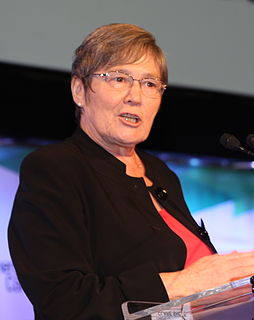A Quote by Nursultan Nazarbayev
As of today, we do not need expert reports by the authoritative analytical institutions to realise that the reasons for such a situation in our community lie in global inequality, poverty and illiteracy.
Related Quotes
There are some people who say that they?re concerned only with poverty but not inequality. But I don?t think that is a sustainable thought. A lot of poverty is, in fact, inequality because of the connection between income and capability?having adequate resources to take part in the life of the community.
For the first time ever we are capable of removing abject poverty, illiteracy and the diseases of poverty from the human condition. The current intensification of global economic integration has demonstrated that there is enough knowledge, technology and capital to bring development to all the people of the world.
If we are too busy, if we are carried away every day by our projects, our uncertainty, our craving, how can we have the time to stop and look deeply into the situation-our own situation, the situation of our beloved one, the situation of our family and of our community, and the situation of our nation and of the other nations?
We desperately need some new thinking today about systems of global governance. We're stuck with the same obsolete, ignore-the-earth institutions that were brough into being after the 2nd World War, and they're now failing us ever more catastropically. Wild Law shows just how radical we now need to be in creating new institutions that are genuinely 'fit for purpose' in the 21st Century.
Labour ministers often look puzzled when reports show that Britain has one of the lowest levels of social mobility in the developed world. They just don't get it. They see poverty, inequality, fairness, as all about income. For the past 12 years, they have relied on tax credits to solve this. But tax credits do not solve poverty: they mask it.
If globalization is to realise its potential as a force for good, we have to look more closely at the means by which we handle our growing interdependence. We do not have a world government, but we do have an increasingly complex network of institutions that are concerned with global governance. They are central to our future and international human rights law
Global poverty is a complex web of interlinked problems. There is no one 'silver bullet' that will solve global inequality. Multiple contributing factors must be tackled in parallel. Yes, education alone is unlikely to lead to employment without economic reform to address the demand side in much of the developing world.
Illiteracy does not impede the practice of democracy, as witnessed by the success of democracy in India despite the high illiteracy rate. One doesn't need a university diploma to realize that the ruler is oppressive and corrupt. On the other hand, to eradicate illiteracy requires that we elect a fair and efficient political regime.


































